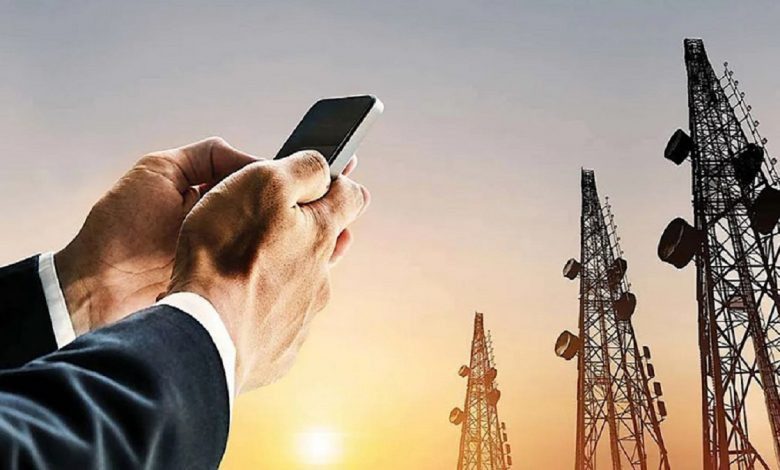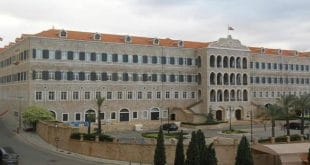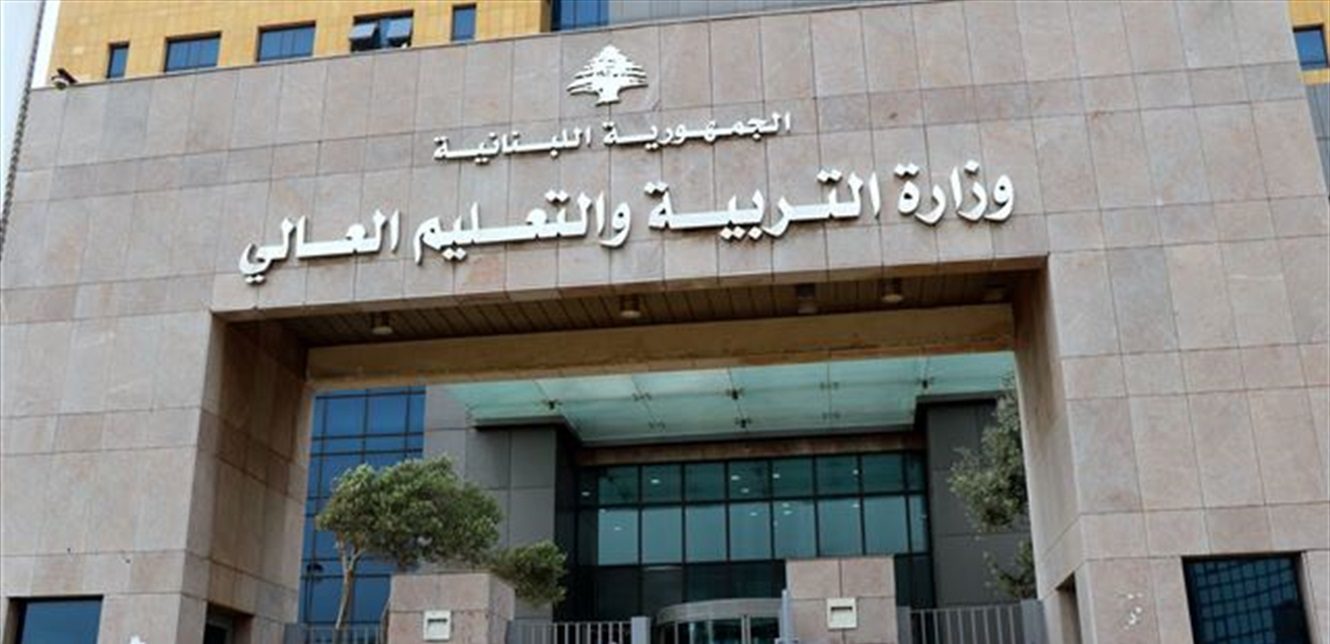مشكلتان تُهدّدان قطاع الخلوي
ضرب العدوان الإسرائيلي “بترول لبنان الأساسي” أيّ قطاع الاتصالات بعد أنْ طالت اعتداءاته مئات المراكز وأعمدة الإرسال إنْ لجهة الخطوط الأرضيّة أو لجهة الإنترنت. وأمام هذا الواقع بات القطاع يرزح تحت عبء أزمتيْن الأولى قديمة جديدة ومتمثّلة بتأمين المازوت في ظلّ انقطاع الكهرباء لمراكز الاتصالات، والثانية الضّرر الكبير الذي لحق بشبكة الإنترنت وأثّر على الاتصالات بين المناطق حيث انعدمت في عدد كبير من القرى والمدن المتضرّرة.
يعتبر تكرار مطالبات بعض الوزراء بضرورة إعادة التفكير في إبرام إتفاق مع الشركة المُشغلة لـ “ستارلينك”، مؤشراً على أهمية وحساسية هذا الملف.
والسؤال، ما هي أحوال القطاع اليوم؟ وما هي المعالجة الفعّالة لانهاء هذه المعاناة بعد أنْ أصبح الإنترنت جزءاً لا يتجزّأ من حياة اللبنانيين في كل أمورهم التعليميّة والصحيّة والاقتصاديّة وغيرها؟
رئيس نقابة العاملين في قطاع الخلوي والاتصالات بول زيتون، يتحدّث لـ “نداء الوطن”، عن المخاطر التي يُعانيها قطاع الاتصالات، مُركّزاً على مشكلتيْن أساسيتيْن “الأولى، تأمين المازوت لشبكات الإرسال كيْ تستمرّ في العمل وتُبقي أبراج الخلوي شغّالة. كما يُواجه القطاع الكثير من المشاكل خصوصاً وأنّ الأبراج قديمة ومهترئة والصيانة عليها نادرة، لا سيّما في المناطق البعيدة. كذلك، هذه الأبراج مُصمّمة لاستيعاب عدد معيّن من الاتصالات، في حين أن نسبة الخطوط الخلويّة في لبنان مرتفعة جداً، ما يزيد من المشاكل لأنّ الأبراج غير مجهزة لاستيعاب هذا العدد الكبير من الاتصالات، وهذا الضغط يتسبّب في تقطّع الخط أثناء الاتصال والاضطرار على إعادة المكالمة”.
“مردود الخزينة يفوق الـ 50%”
ويلفت زيتون الى أن “قطاع الاتصالات معروف منذ سنوات بأنه أشبه بـ “بترول” لبنان لأنّ مردوده على الخزينة العامّة يفوق الـ 50% من إجمالي المداخيل”، آسفاً لـ “انعدام القدرة المادية لتشغيل وتحسين هذا القطاع الحيوي. فالأزمة الاقتصاديّة ارتدت على القدرة على تجهيز الشبكات بالمستوى المطلوب، ويتمّ اليوم ترقيعها”.
“مشكلة الإنترنت”
أمّا المشكلة الثانية الكبيرة فمرتبطة بالإنترنت وفق زيتون الذي يوضح أن “أوجيرو” أيضاً تُواجه مشاكل في تأمين المازوت لتشغيل السنترالات وتأمين الإنترنت. لبنان بالكاد قادر على تأمين الإنترنت بسرعة وقوّة ضعيفتيْن جداً، في حين أن الدول الأخرى تتحدّث عن 4 و5 جيغابايت. حتى أن هناك مخاوف من انقطاعه كليّاً في حال عادت الحرب لأنه يُقال أنّ لبنان يعتمد فقط على الكابل البحري الذي لا بديل له، وبالتالي في حال تمّ ضربه نخسر الخدمة كلياً”.
جدليّة “ستارلينك”
لكن، رئيس نقابة العاملين في قطاع الخلوي والاتصالات يكشف أنّ “هذه المعلومات غير دقيقة إذْ إن هناك بديلاً هو “ستارلينك”. إلّا أنّه محدود ويُمكن الإعتماد عليه للحاجات الضروريّة إذ يُمكنه فقط تغطية الدولة والأجهزة الأمنيّة وبعض الشركات، ولا قدرة لهذا المشروع على تغطية كافة الأراضي اللبنانيّة كونه جديداً. إذاً، أيّ عطل في شبكة الإنترنت خطير لأنه يعزل لبنان بأكمله عن العالم وهذا أهمّ من الحصار الاقتصادي وغيره، حتى أن السنة الدراسيّة ستكون مهدّدة لأن الطلاب لن يتمكّنوا من أخذ حصصهم أونلاين بل فقط بالحضور في المدارس”.
ويشرح زيتون أن “الدولة مُمثلة بالأجهزة الأمنية لم توافق بعد على العمل مع “ستارلينك”. وعلى الأرجح، هناك مشاكل في تقسيم الحصص، خاتماً: “علينا الانتظار لمعرفة مصير هذا العقد الذي يُمكنه حلّ جزء ولو بسيط من مشكلة الإنترنت في لبنان”.
وفي هذا الإطار، يُذكَر أنّ وزير الاقتصاد والتجارة في حكومة تصريف الأعمال أمين سلام كتب أمس الأربعاء، عبر منصة “إكس”: طالبت اليوم خلال جلسة مجلس الوزراء، بتفعيل خدمة “ستارلينك” في لبنان لتسهيل وصول خدمة الإنترنت إلى الجنوب والبقاع، في ظل ما تعرّضت له شبكة الاتصالات من اعتداءات نتيجة العدوان الإسرائيلي تحديداً، وذلك لتسهيل سرعة إعادة الاتصال بين المؤسسات التجاريّة والصناعيّة والاقتصاديّة بين بعضها البعض والعالم ككل، إحياءً للدورة الإقتصاديّة في المناطق الصامدة لتنتعش سريعاً من جديد، ولأثرها الإيجابي على الحركة الاقتصادية العامة في البلد، ولما تشكّل خدمة الإنترنت من أهمية كبرى في تسهيل الاتصال والأعمال”.
في الختام، يدفع لبنان واللبنانيون ثمن تقاعس الحكومة عن وضع خُطط بديلة للاتصالات في زمن الحرب، فهل تستدرك الحكومة خطأها في هذا المجال وتُقدّم حلولاً عاجلة؟
Two Major Problems Threatening the Cellular Sector in Lebanon: Diesel Shortage and Internet Disruptions
The Israeli aggression has severely impacted Lebanon's vital communications sector, often referred to as “Lebanon's oil.” The attack targeted hundreds of communication centers and transmission towers, affecting both landline and internet services. This situation has led to two primary crises within the sector: the first, a recurring problem regarding diesel supply to power communication centers amidst widespread electricity outages, and the second, the extensive damage to the internet network, which has disrupted communications across numerous affected towns and villages.
The Diesel Shortage and Overloaded Towers
One of the key challenges faced by the sector is the difficulty in securing diesel to maintain transmission towers in operation. According to Paul Zaitoun, President of the Syndicate of Workers in the Cellular and Communications Sector, “The towers are old and deteriorating, and maintenance is rare, particularly in remote areas.” He also adds, “These towers were designed to handle a certain number of calls, yet the number of cellular lines in Lebanon is excessively high, causing congestion and call dropouts.”
The Communications Sector as a Major Revenue Source
The Lebanese communications sector has long been a significant contributor to the national treasury, providing over 50% of total revenue. However, the ongoing economic crisis has hindered the ability to invest in the necessary improvements for communication networks. Zaitoun emphasizes that the economic downturn has negatively impacted the capacity to maintain and upgrade these networks, resulting in service disruptions.
Internet Issues: Service Outages and Educational Impact
The second major problem concerns the internet, with Zaitoun pointing out that Ogero, the national telecommunications provider, is struggling to secure enough diesel to run its central offices and deliver reliable internet service. “Lebanon can barely offer internet at speeds far below international standards, while other countries talk about 4G and 5G networks,” Zaitoun notes. There are growing concerns that, in the event of renewed conflict, the internet could be entirely cut off, as Lebanon relies solely on the undersea cable, with no alternative if it were damaged.
The Debate Over “Starlink” as an Alternative
Despite the challenges, Zaitoun reveals that there is an alternative: “Starlink,” the satellite internet service. However, its potential is limited, primarily serving government agencies, security forces, and a few companies, and cannot cover the entire country. “Any disruption to internet service is dangerous, as it isolates Lebanon from the world, and this is a bigger issue than an economic blockade,” he explains. “The school year could be jeopardized, as students would not be able to attend online classes and would have to attend school in person.”
Zaitoun further clarifies that the Lebanese government has not yet agreed to cooperate with Starlink. “There are probably disagreements over how to distribute the service, and we will have to wait to see what happens with the contract, which could provide a partial solution to Lebanon's internet problem.”
Government Initiatives and the Call for “Starlink”
Minister of Economy and Trade, Amin Salam, recently emphasized the importance of activating the “Starlink” service in Lebanon. “During the Cabinet session, I called for the activation of ‘Starlink' to improve internet access in the south and Bekaa Valley, following the damage caused to the communications network by Israeli attacks,” Salam said. He added that this service could help reconnect businesses and vital economic activities, especially in resilient areas, to boost the country's economy.
Will the Lebanese Government Act to Resolve the Crisis?
In conclusion, Lebanon and its citizens are bearing the consequences of the government's failure to develop alternative communications plans in times of war. The critical question remains: will the Lebanese government rectify its mistakes and offer urgent solutions to the communications and internet crises amid the ongoing challenges?
Translated by economyscopes team
المصدر: رماح هاشم – اللواء
 سكوبات عالمية إقتصادية – EconomyScopes إجعل موقعنا خيارك ومصدرك الأنسب للأخبار الإقتصادية المحلية والعربية والعالمية على أنواعها بالإضافة الى نشر مجموعة لا بأس بها من فرص العمل في لبنان والشرق الأوسط والعالم
سكوبات عالمية إقتصادية – EconomyScopes إجعل موقعنا خيارك ومصدرك الأنسب للأخبار الإقتصادية المحلية والعربية والعالمية على أنواعها بالإضافة الى نشر مجموعة لا بأس بها من فرص العمل في لبنان والشرق الأوسط والعالم




